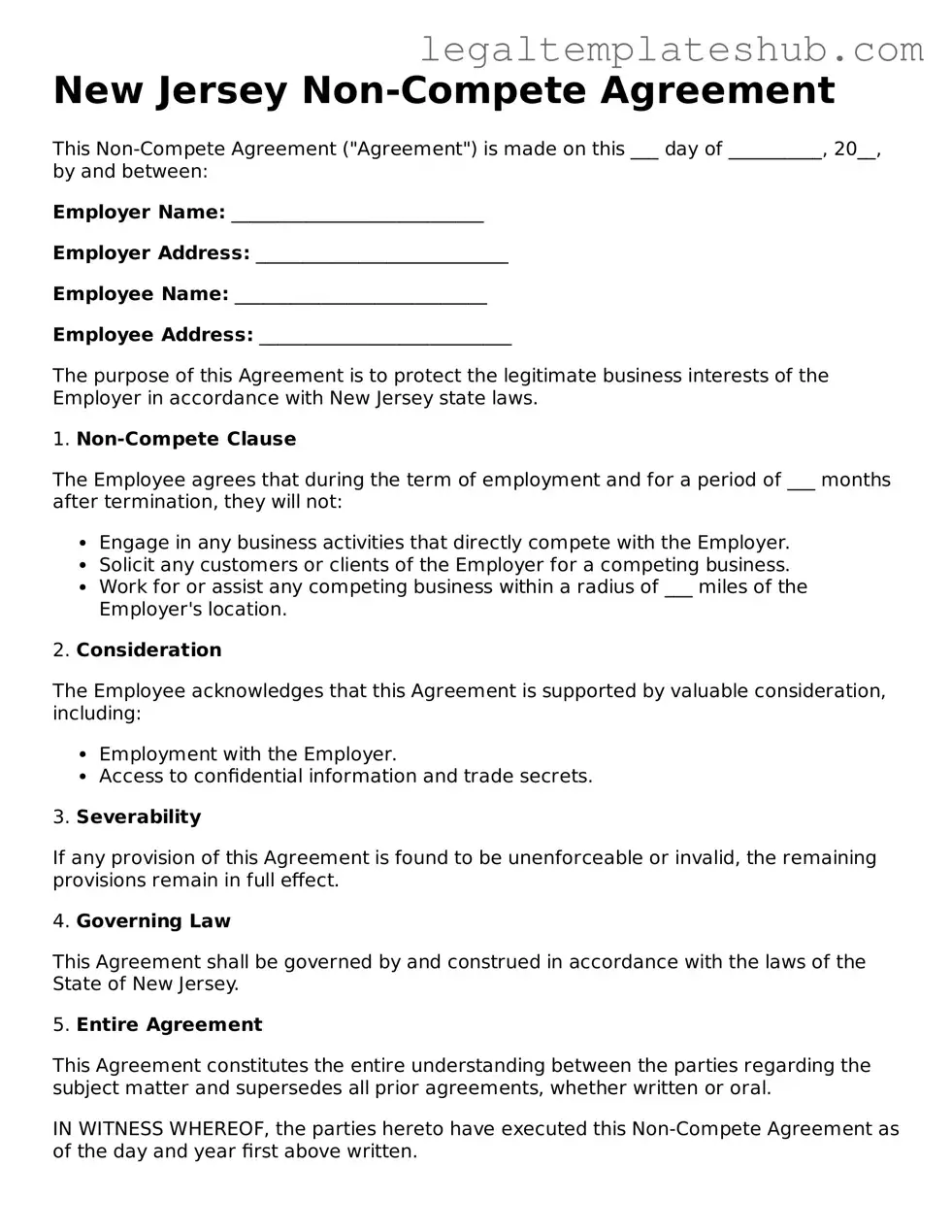Printable Non-compete Agreement Document for New Jersey
A New Jersey Non-compete Agreement form is a legal document designed to restrict an employee's ability to work for competitors after leaving a job. This agreement aims to protect a business's trade secrets and competitive edge. Understanding its implications is crucial for both employers and employees alike.
To learn more about how to fill out the Non-compete Agreement form, click the button below.
Access Editor
